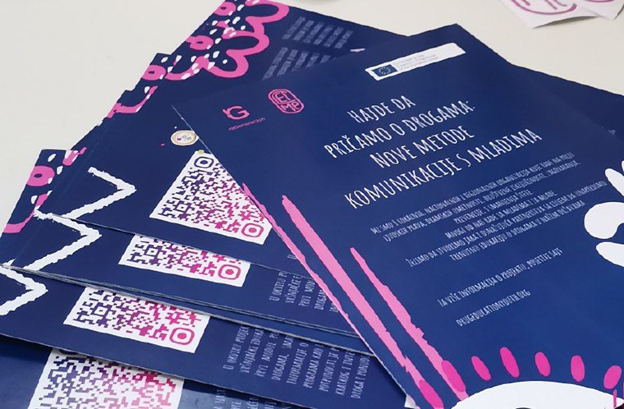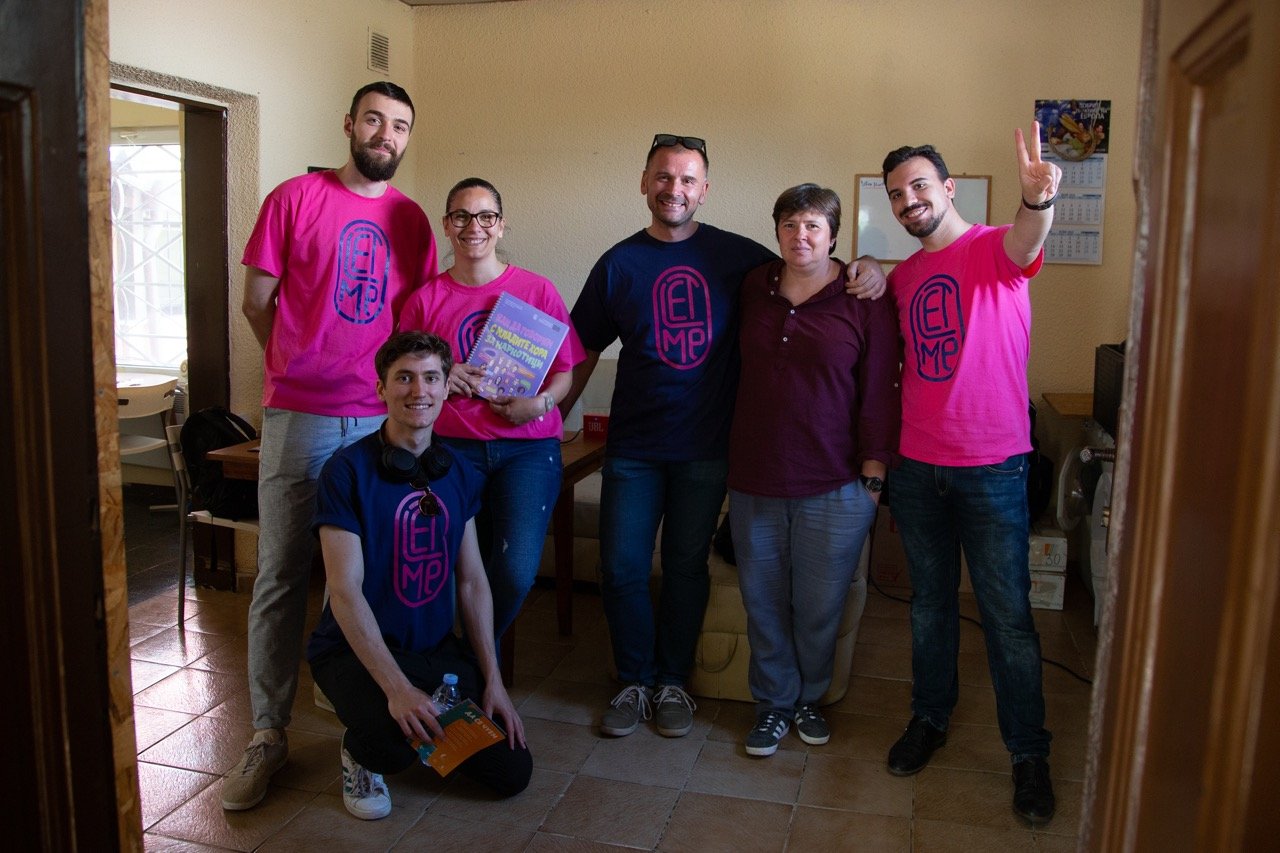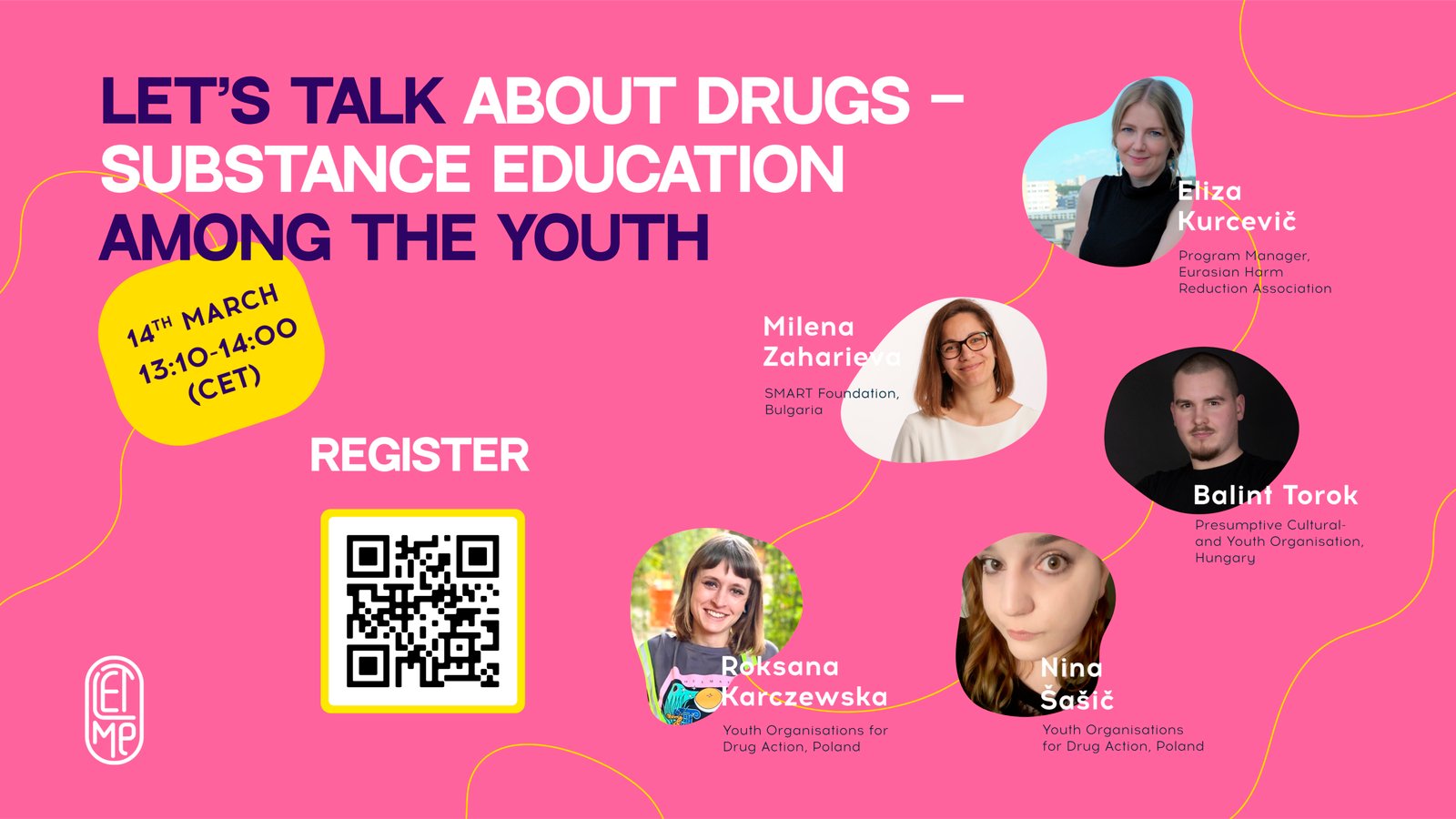Author: Milda Arlauskaitė, Young Wave, Lithuania
I was raised in a small village in Lithuania. Sometimes it seemed more like a big community because everyone knew each other. In the village, we had a school, a public library, and a small culture center, where we would hold events and celebrations. I am thankful to my village community for a lot of bright memories.
It is not a secret that in a lot of, actually probably in every Lithuanian village, people use psychoactive substances, from which the most common is alcohol. Going to school, as a child, you see some drunk person every day, you get used to it, it seems normal and fine to have a drink. But it was never normal to speak about other substances. “Never touch other substances! Always say no to drugs! Drug users are the most dangerous criminals!” This is what I remember from drug education at my school. I can’t blame the teachers for that kind of education. I believe that they don’t know any better approach or even language how to speak about drugs and I even think that they believe in what they are saying. This happens because of decades of existing stigma against people who use drugs, as well because there are just no curricula on drug education, and teachers are not equipped with appropriate and science-based information, or even methods – how to communicate about drugs with students.
Despite the warnings, which I and my classmates received from teachers, as a teenager and an explorer, I figured out myself that there are other substances. I learned about it through my friends from the big cities. And then I felt that at school I’ve been lied to… It turns out that people who use drugs are not dangerous criminals, it turns out that if you try some substance, you won’t necessarily lose your mind and eventually die! At that moment, all that I’ve been “taught” about drugs at school have fallen apart.
When I graduated from school, I moved to the capital. Now I knew that I shouldn’t believe everything that authorities say, and I should explore and figure out everything on my own. I started to go to parties, music festivals, and gatherings where I met a lot of great people, and of course, explored a lot of psychoactive substances that I didn’t know existed. At a time, I already knew that people who use drugs are usually nice people and not criminals at all, but what was kind of a shock to me is that they still get treated as the worst criminals if they get caught, even for the most harmless substances, even for the smallest amounts. So, that is just one part. Another unexpected part was that MUCH more people than I thought are using drugs, unfortunately, not everyone knows how to do it safely. I heard the news that one girl died at a music festival because she mixed cocaine and barbiturates – intense stimulant and sleeping pills. She was found in a forest alone, no one knew how long she was there… “This is not fair”, I thought. Then I started to think – is there anything I could do to prevent situations like this?
And this was the time I joined “Young Wave”, at that time initiative group and now officially registered NGO established by young people who use drugs and who are affected by harmful drug policies in Lithuania, to embrace each other and be a respectable and constructive part of drug policy formation. In the beginning, we were volunteering as peer-to-peer educators by providing information and consultations about psychoactive substances. Peer-to-peer consulting and education in the nightlife settings was a fresh thing in Lithuania. As a group of young and compassionate people, we dreamed big! So, the next thing we did – we started to provide harm reduction services for people who use drugs occasionally (in music festivals, rave parties). In addition to peer consultations and psychological support, we started to distribute reagents test kits (to check substances, which people are planning to use), distribute safer drug use equipment (gelatin capsules, straws), vitamins and water, etc. We became the first youth harm reduction organization in Lithuania and of course, instead of support we received a negative attitude from the governmental institutions (some even said that we are doing illegal activities by distributing safer drug use equipment). At the same time, we started to participate in projects and campaigns, we found supportive partners in regional and international organizations. I believe that we made and actually still making a change in drug education in Lithuania, by introducing new approaches and responding to ineffective methods by action instead of inaction.
I am very happy, that “Young Wave” is taking part in the project “LEt’s Talk about drugs – new MEthods of communication with youth” (LET ME), because it opens the opportunity to start discussions about drug education in Lithuania not only through formal ways, but also informal ones. Last year, together with partners from 4 other countries (Bulgaria, Hungary, Poland and Serbia), we published an assessment report on drug education in these countries. You can find the full report here: https://drugeducationyouth.org/drug-education-assessment-report/.
At the moment the manual on drug education is being developed, which will be a great tool for peer-to-peer educators and youth workers and it also can be used in schools to change drug education and make it innovative and objective. Later on, we will create educational videos and disseminate project results at national events. We hope that this project will become an engine for the improvement of drug education in Lithuania.







